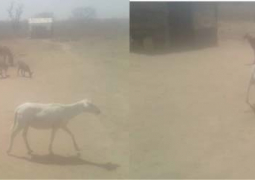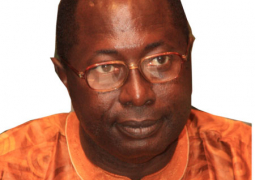Gambian
refugees in Italy are overwhelmed by the news that the former president, Yahya
Jammeh, finally left The Gambia after 22 years in power.
Generally,
it has been a very tough post-electoral period mixed with different feelings
among Gambians in Italy. For many it was surprising that the impasse that
followed Jammeh’s rejection of the result of 1st December election was solved
peacefully.
Assan
Jallow, 24, said: “I lost hope when I heard Jammeh rejected the election
because I thought people were going to protest which could end up to be a civil
war. I could not imagine this day, the
day that impasse would be solved peacefully. The Smiling Coast is back and we
are happy.”
According
to Amnesty International, more than 25,000 Gambians have used the Mediterranean
to seek for asylum in Europe, through Italy, in less than a decade. Many more Gambians are dispersed all over
Europe as victims of the 22 years of Jammeh’s tyranny, rights groups said.
Muhammed
Ceesay, 41, said: “Gambians have
suffered a lot; our economy is broken, and we do not have a strong
infrastructure. The new government will have to start with building peace among
Gambians and start it all over. This
maybe more complex than we are taking it.”
Meanwhile,
many Gambians in Italy are in a jubilant mood, for they can now go home with
peace of mind, free from persecution.
Babu
Kinteh, 31, said: “I am going back home
after a long time. At first, this seems to be an illusion to me, but what more
can we not attain as a united Gambia?
“However,
my emotion right now is mixed, because Gambians have gone through 22 years of
misrule; people have been divided and institutions decayed. But I now strongly believe Gambians can work
together to rebuild their country.”
Freedom
For
the past 22 years, if there is one thing that many Gambians yearned for, it is
freedom of expression.
Several
human rights groups, including Amnesty International, had criticised and
condemned the government of Yahya Jammeh for its alleged gross human rights
violations such as arbitrary arrest, detention, and imprisonment without the
due process of law.
Sanku
Sillah, a technical student, said the government of Jammeh had unfairly treated
many Gambians.
“We
could not speak against anything; even our private lives were controlled. But we should now concentrate on
nation-building by constructing transparent and democratic institutions,
promote quality in education, eradicate corruption, and build a strong economy.
This might take some time, but it is the formula.”
With
the departure of former president Jammeh and the coming of President Adama
Barrow, many Gambian refugees and asylum seekers can now return home without
many obstacles.



